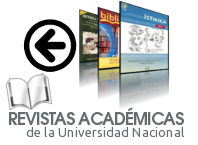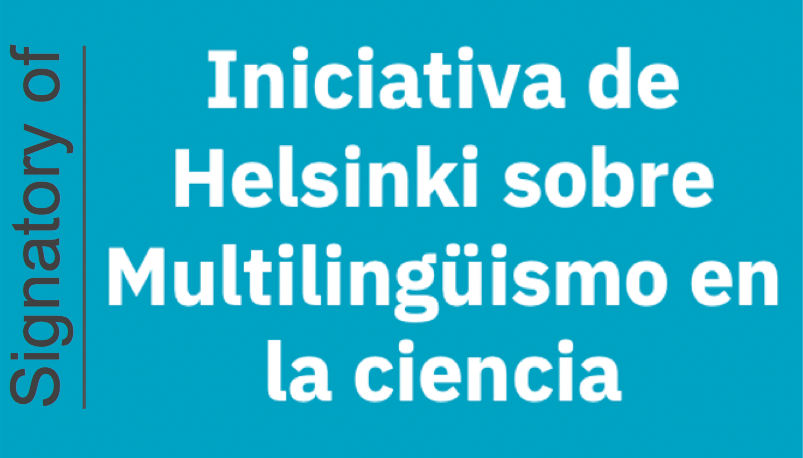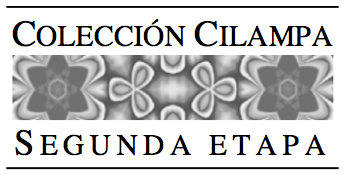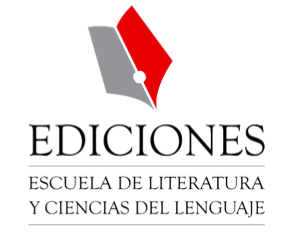Las narrativas innaturales
DOI:
https://doi.org/10.15359/rl.2-60.9Palabras clave:
narratología, teoría de conjuntos, literatura estadounidense, literatura costarricense, literatura brasileña, ciencia ficciónResumen
Se desarrolla una crítica de las narrativas innaturales, que responden a un nuevo esquema narratológico entendido en términos antimiméticos. Se describen las principales características de estas narrativas, en relación con conceptos como lector, tiempo o narración; en función del desarrollo de literaturas experimentales y dentro del contexto de una política de lo imposible, que plantea ontologías alternas (post)postmodernas, mediante la representación de mundos posibles, que evaden la realidad social y cuyo rol sociológico es el control social. Además, se señalan las contradicciones internas de estas narrativas innaturales.
Referencias
: A Space Odyssey. Dir. Stanley Kubrick. Con Keir Dullea, Gary Lockwood, William Sylvester y Daniel Richter. Stanley Kubrick, 1968.
Abdalla, Elcio. «Teoria quântica da gravitação: Cordas e teoria M», Revista Brasileira de Ensino de Física 27, 1 (2005): 147-155. DOI: https://doi.org/10.1590/s1806-11172005000100017.
Aiken, Brad. «The Last Clone», Brad Aiken. Small Doses of the Future. Cham, Heidelberg, Nueva York, Dordrecht y Londres: Springer, 2014.
Alber, Jan, Henrik Skov Nielsen y Brian Richardson, «Unnatural Voices, Minds, and Narration», Joe Bray, Alison Gibbons y Brian McHale, eds., The Routledge Companion to Experimental Literature. Londres y Nueva York: Routledge, 2012. DOI: https://doi.org/10.4324/9780203116968.ch26.
Alber, Jan, Stefan Iversen, Henrik Skov Nielsen y Brian Richardson, «What Really Is Unnatural Narratology?», StoryWorlds: A Journal of Narrative Studies 5 (2013): 101-118. DOI:
https://doi.org/10.5250/storyworlds.5.2013.0101.
Alber, Jan, Stefan Iversen, Henrik Skov Nielsen y Brian Richardson, «What Is Unnatural about Unnatural Narratology? A Response to Monika Fludernik», Narrative 20:3 (2012): 371-382. DOI: https://doi.org/10.1353/nar.2012.0020.
Alber, Jan, Stefan Iversen, Henrik Skov Nielsen, y Brian Richardson, «Unnatural Narratives, Unnatural Narratology: Beyond Mimetic Models», Narrative 18:2 (2010): 113-136. DOI: https://doi.org/10.1353/nar.0.0042.
Alber, Jan. «Impossible Storyworlds—and What to Do with Them», Storyworlds: A Journal of Narrative Studies 1 (2009): 79-96. DOI: https://doi.org/10.1353/stw.0.0008.
Alfaro Vargas, Roy. «Capitalismo zombie. Contribución a la crítica del último capitalismo», Telos. Revista de Estudios Interdisciplinarios en Ciencias Sociales 13, 3 (2011).
Alfaro Vargas, Roy. «El novum tecnocrático», Hélice II, 5 (2015): 12.
Alfaro Vargas, Roy. «El rol de los modelos mentales espaciales en la aprehensión literaria», Revista de Ciencias Sociales III: 121 (2008): 174. DOI: https://doi.org/10.15517/rcs.v0i121.10504.
Alfaro Vargas, Roy. «Marxismo y ciencia ficción», Praxis. Revista de Filosofía 72 (2014): 87.
Alfaro Vargas, Roy. «Modelos mentales tempo-espaciales», Revista de Ciencias Sociales III-IV: 133-134 (2011): 19. DOI: https://doi.org/10.15517/rcs.v0i133-134.3685.
Alfaro Vargas, Roy. «Postpostmodernismo», Reflexiones 93, 2 (2014): 103-113.
Alfaro Vargas, Roy. «Sociología dialéctica de la literatura», Revista de Ciencias Sociales III-IV, 109-110 (2005): 151-156.
Azevedo, Renato A. «A Lista. A última supernova», Somnium 110 (2014): 35-44.
Badiou, Alain. L’Être et l’événement. París: Éditions du Seuil, 1988.
Badiou, Alain. Logiques des mondes. L’Être et l’événement, 2. París: Éditions du Seuil, 2006.
Badiou, Alain. Number and Numbers. Cambridge y Malden, MA: Polity, 2008.
Berry, R. M. «Metafiction», Joe Bray, Alison Gibbons y Brian McHale, eds., The Routledge Companion to Experimental Literature. Londres y Nueva York: Routledge, 2012.
Blundell, Stephen. Superconductivity: A Very Short Introduction. Nueva York: Oxford University Press, 2009.
Booker, Keith M. Postmodern Hollywood: What’s New in Film and Why it Makes Us Feel So Strange. Westport/Connecticut-Londres: Praeger, 2007.
Burhanuddin, Baki. Badiou’s Being and Event and the Mathematics of Set Theory. Londres y Nueva York: Bloomsbury, 2015.
Callinicos, Alex. Deciphering Capital. Marx’s Capital and Its Destiny. Londres: Bookmarks Publications, 2014) 153.
Castellani, Leonardo y Giulia Alice Fornaro, Teletrasporto. Dalla fantascienza alla realtà. Milán: Springer, 2011) 9.
Chappie. Dir. Neill Blomkamp. Con Sharlto Copley, Dev Patel, Ninja, Yo-Landi Visser, José Pablo Cantillo y Hugh Jackman. Alpha Core, Columbia Pictures y LStar Capital, 2015.
Clemens, Justin. «Doubles of Nothing: The Problem of Binding Truth to Being in the Work of Alain Badiou», Filozofski Vestnik XXVI, 2 (2005): 101.
Djikic, Maja, Keith Oatley y Mihnea C. Moldoveanu, «Reading other minds. Effects of Literature on Empathy», Scientific Study of Literature 3:1 (2013): 28-47. DOI: https://doi.org/10.1075/ssol.3.1.06dji.
Farrán, Roque. «Badiou y Lacan: algunas consideraciones en torno a lo real, la ontología y el concepto de sujeto en la práctica filosófica y psicoanalítica», El laberinto de arena 1, 1 (2013): 14.
Frigg, Roman. «Models and Fiction», Synthese 172 (2010): 252.
Gaskin, Richard. Language, Truth, and Literature. A Defense of Literary Humanism. Oxford: Oxford
University Press, 2013.
Gironi, Fabio. Naturalising Badiou. Mathematical Ontology and Structural Realism. Londres y Nueva York: Palgrave Macmillan, 2015.
Gomel, Elana. «‘Rotting Time’. Genre Fiction and the Avant-garde», Joe Bray, Alison Gibbons y Brian McHale, eds., The Routledge Companion to Experimental Literature. Londres y Nueva York: Routledge, 2012.
Higgins, David M. «Coded Transmissions, Gender and Genre Reception in Matrix», Brian Attebery y Veronica Hollinger, eds., Parabolas of Science Fiction. Middletown, Connecticut: Weslayan University Press, 2013.
Hollinger, Veronica. «Science Fiction and Postmodernism», David Seed (ed.) A Companion to Science Fiction. Malden MA, Oxford y Victoria: Blackwell, 2005.
Interstellar. Dir. Christopher Nolan. Con Matthew McConaughey, Anne Hathaway, David Gyasi, Jessica Chastain, Mackenzie Foy, Matt Damon y Michael Caine. Warner Bros., Syncopy, Paramount Pictures, Legendary Pictures y Lynda Obst Productions, 2014.
Jameson, Fredric. Archaeologies of the Future. The Desire Called Utopia and Other Science Fictions. Londres y Nueva York: Verso, 2005.
Kaku, Michio. Physics of the Impossible: A Scientific Exploration into the World of Phasers, Force Fields, Teleportation, and Time Travel. Nueva York: Doubleday, 2008.
Lefèbvre, Henri. Lógica formal, lógica dialéctica. México: Siglo Veintiuno Editores, 1976.
Mäkelä, Maria. «Realism and the Unnatural», Jan Alber, Henrik Skov Nielsen y Brian Richardson, eds., A Poetics of Unnatural Narrative. Columbus: The Ohio State University Press 2013) 157.
McHale, Brian. «Postmodernism and Experiment», Joe Bray, Alison Gibbons y Brian McHale, eds., The Routledge Companion to Experimental Literature. Londres y Nueva York: Routledge, 2012.
McHale, Brian. Postmodernist Fiction. Londres y Nueva York: Routledge, 1987.
Merivale, Patricia. «Postmodern and Metaphysical Detection», Charles J. Rzepka y Lee Horsley, eds., A Companion to Crime Fiction. Malden, MA y Oxford: Wiley-Blackwell, 2010.
Minhot, Leticia. «Teoría de conjuntos y ontología», Arbor Ciencia, Pensamiento y Cultura 187 (2011): 31.
Morton, Timothy. «Pandora’s Box. Avatar, Ecology, Thought», Gerry Canavan y Kim Stanley Robinson, eds., Green Planets. Science Fiction and Ecology. Middletown, Connecticut: Weslayan University Press, 2014.
Nealon, Jeffrey T. Post-postmodernism or, the cultural logic of just-in-time capitalism. Stanford: Stanford University Press, 2012.
Oatley, Keith. Such Stuff as Dreams. The Psychology of Fiction. Malden MA-Oxford: Wiley-Blackwell, 2011.
Ortega Rodríguez, Manuel y Alí Víquez Jiménez, Los peces de Cooper. San José: EUNED, 2015.
Peregrina, Mikel. «La ciencia ficción y la narrativa posmoderna: hacia la convergencia», Alambique: Revista académica de ciencia ficción y fantasia /Jornal acadêmico de ficção científica e fantasía 3, 1 (2015). DOI: https://doi.org/10.5038/2167-6577.3.1.2.
Pyrhönen, Heta. «Criticism and Theory», Charles J. Rzepka y Lee Horsley, eds., A Companion to Crime Fiction. Malden, MA y Oxford: Wiley-Blackwell, 2010.
Richardson, Brian. «Unnatural Stories and Sequences», Jan Alber, Henrik Skov Nielsen y Brian Richardson, eds., A Poetics of Unnatural Narrative. Columbus: The Ohio State University Press, 2013.
Rumpala, Yannick. «Ce que la science-fiction pourrait apporter à la pensée politique», Raisons politiques 40 (2010): 99. DOI: https://doi.org/10.3917/rai.040.0097.
Ryan, Marie-Laure. «Impossible Worlds», Joe Bray, Alison Gibbons y Brian McHale, eds., The Routledge Companion to Experimental Literature. Londres y Nueva York: Routledge, 2012.
Skov Nielsen, Henrik. «Fictional Voices? Strange Voices? Unnatural Voices?», Per Krogh Hansen, Stefan Iversen, Henrik Skov Nielsen y Rolf Reitan, eds., Strange Voices in Narrative Fiction. Berlín: De Gruyter, 2011.
Smithson, Michael y Jay Verkuilen, Fuzzy Set Theory. Applications in the Social Sciences. Thousand Oaks, California: Sage, 2006.
Spiegel, Simon. «Things Made Strange: On the Concept of «Estrangement» in Science Fiction Theory». Science Fiction Studies 35:3 (2008): 370.
Spiegel, Simon. «Science Fiction», en Markus Kuhn, Irina Scheidgen y Nicola Valeska Weber, eds., Filmwissenschaftliche Genreanalyse. Eine Einführung. Berlín/Boston, 2013.
Suvin, Darko. «Afterword: with Sober, Estranged Eyes», Patrick Parrinder (ed.). Learning from Other Worlds. Estrangement, Cognition and the Politics of Science Fiction and Utopia. Liverpool: Liverpool University Press, 2000.
Suvin, Darko. Metamorphoses of Science Fiction. On the Poetics and History of a Literary Genre. New Haven y Londres: Yale University Press, 1979.
Thoss, Jeff. «Unnatural Narrative and Metalepsis: Grant Morrison’s Animal Man», Jan Alber y Rüdiger Heinze, eds., Unnatural Narratives-Unnatural Narratology. Berlin: De Gruyter, 2011.
Torralba, Francesc. ¿Un altre món és possible? Educar després de l’Onze de Setembre. Barcelona: Edicions 62, 2003.
Publicado
Cómo citar
Número
Sección
Licencia
Principios básicos:
a) Los autores conservarán los derechos de propiedad intelectual de sus aportes o artículos;
b) Cada autor deberá indicar expresamente que ese artículo lo entrega, en calidad de exclusividad, a la revista LETRAS; y
c) La revista Letras se reservará el derecho de autorizar para fines académicos no lucrativos la reproducción y uso de ese material por parte de terceros, siempre que éstos indiquen expresamente la procedencia del artículo. Todo ello se postula en concordancia con la normativa de "Creative Commons Atribution License", recomendada.

This work is licensed under a Creative Commons Attribution-NonCommercial-NoDerivs 3.0 Costa Rica License.















